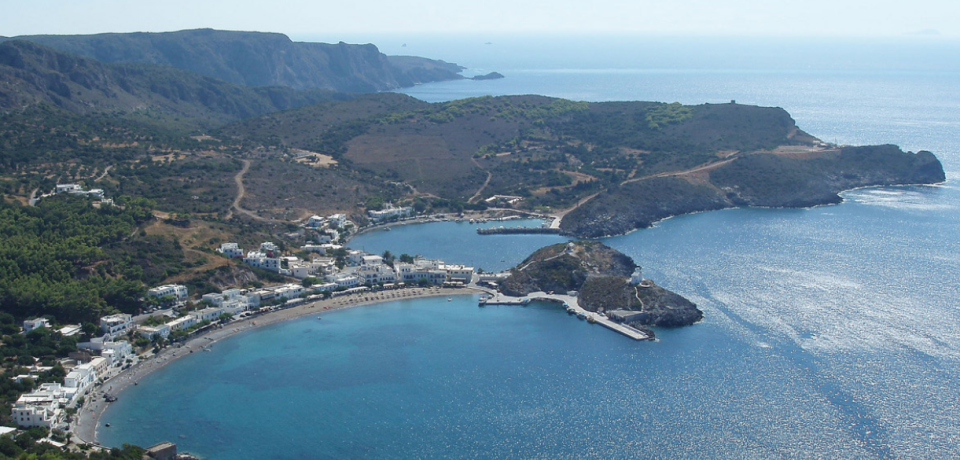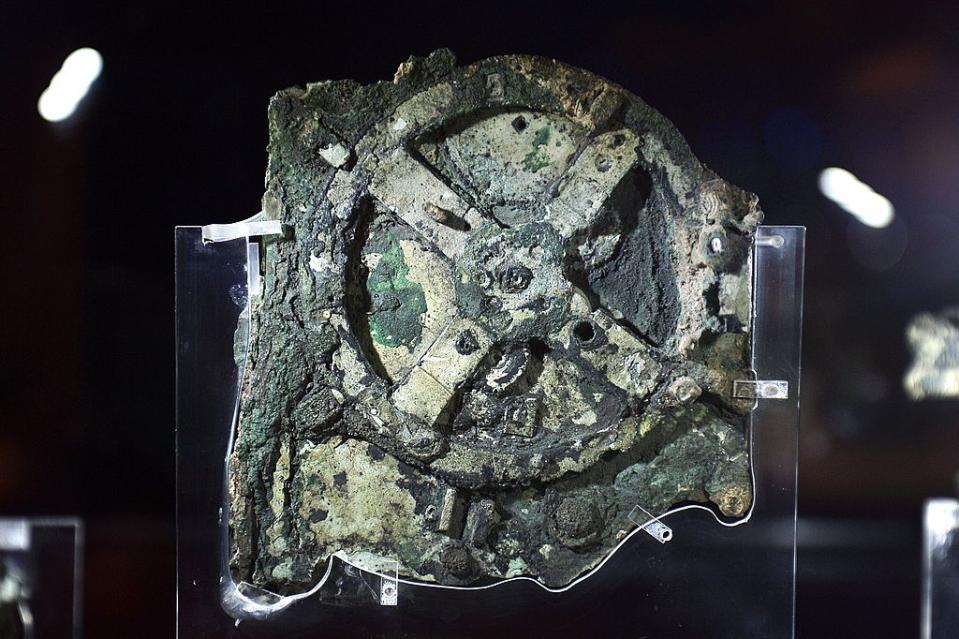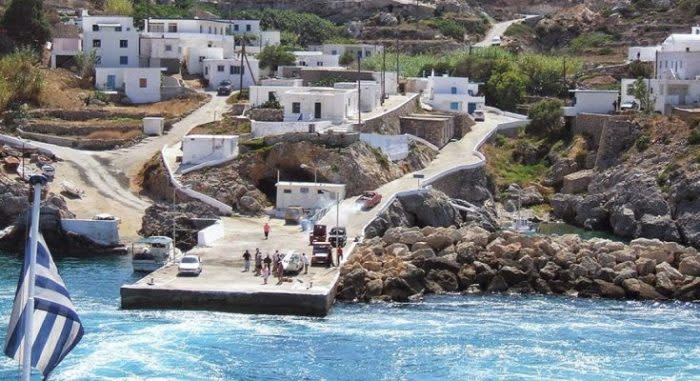You could get paid $10,000 a year to live on a picturesque Greek island

Located between Crete and Greece’s mainland is Antikythera, a small Aegean island a mere 45-minute flight from Athens.
It looks just like any Greek paradise: blue waters, white-washed homes, beautiful cliff faces and unbeatable weather.
It’s also famous for some crazy archeological finds; in 1900 a huge shipwreck was discovered, and along with it, the Antikythera Mechanism, which has been hailed as the first computer.

Related article: A look inside the dreamy Italian city Airbnb will pay you to live in for three months
Related article: The small Italian city that will pay your whole family to move there
Related article: This idyllic island is down to its last 469 residents - and wants Aussies to move there
And, should you choose to call it home, you could be paid to live there.
The Metropolitan Bishop of Kythera (the neighbouring, larger island) and Monemvasia, along with the council of Antikythera, have a deal for you.
Authorities will provide families with more than three children a monthly stipend of €500 (AU$809), free accommodation and free food if they make a permanent move to the island.

Sounds great, right?
There’s just one catch: Antikythera is down to its last 24 residents.
This means you might be a little lonely, but the president of the local Antikythera council, Andreas Charchalakis, told Greek website iefimerida that fishermen, stock-farmers, builders and bakers could flourish there.
”These are professions which can guarantee a decent income for those who will come to our island,” he said.
Why did locals leave in the first place?
If you’re a little worried the island’s first residents left because of a serial killer or some awful curse, don’t fret.
Antikythera is a microcosm of what’s going on in the entire country: young professionals are leaving the country to seek better opportunities as Greece battles continual fiscal issues.
The island is beautiful, but it doesn’t have the same sort of tourism that other islands have, which means there are no taxis, petrol stations or bars.
It’s also part of the Attica region, which includes Athens, meaning Antikythera locals pay big-city prices yet aren’t making a sustainable income on the island.
But having young families could change everything – and could guarantee the survival of the island.
Make your money work with Yahoo Finance’s daily newsletter. Sign up here and stay on top of the latest money, property and tech news.

 Yahoo Finance
Yahoo Finance 